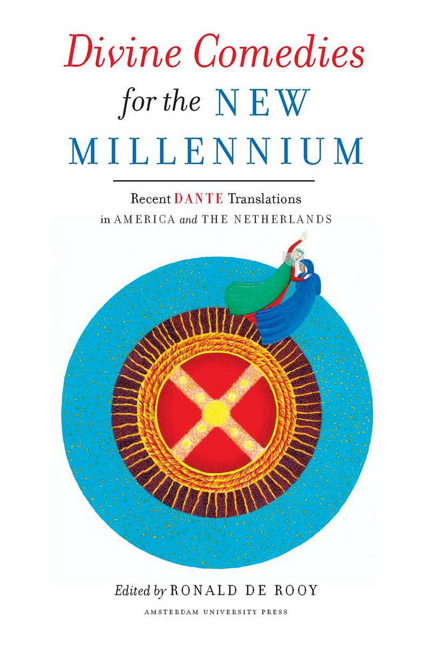Book contents
- Frontmatter
- Contents
- IntroductionDivine Comedies for the New Millennium. Humbleness and Hubris
- The Translations of Dante’s Comedy in America
- Translating Dante into English Again and Again
- ‘Getting Just a Small Part of it Right’
- The Poet Translated by American Poets. In Search of the Perfect ‘Trasmutazione Musaica’
- Ciò Che Potea La Lingua Nostra. One Hundred and More Years of Dante Translations into Dutch
- Translating Dante’s Translations
- Notes
- About the Contributors
- Selected Bibliography of American and Dutch Dante Translations
- Index of Names
- Miscellaneous Endmatter
Translating Dante into English Again and Again
Published online by Cambridge University Press: 23 January 2021
- Frontmatter
- Contents
- IntroductionDivine Comedies for the New Millennium. Humbleness and Hubris
- The Translations of Dante’s Comedy in America
- Translating Dante into English Again and Again
- ‘Getting Just a Small Part of it Right’
- The Poet Translated by American Poets. In Search of the Perfect ‘Trasmutazione Musaica’
- Ciò Che Potea La Lingua Nostra. One Hundred and More Years of Dante Translations into Dutch
- Translating Dante’s Translations
- Notes
- About the Contributors
- Selected Bibliography of American and Dutch Dante Translations
- Index of Names
- Miscellaneous Endmatter
Summary
The title of this paper reflects not only my wife's and my practice as we work through the Comedy, draft after draft, but that of British and American translators since the beginning of the nineteenth century. It is worth taking a moment to remind ourselves how much Dante in English has been and still remains available. John Ahern, in a useful survey of Translations in English in The Dante Encyclopedia, calculates a total of nearly 100 English translations, in a total of some 200 volumes, since many have translated only a single cantica.
A Crowded Field
One should begin by mentioning the partial translations by Rogers and by Boyd in the late eighteenth century. However, the first translation that succeeded in finding a wide and significant audience (e.g. Blake, Keats, Melville) was that of Henry Cary (1805-1806, second, revised version in 1815). In any case, in the past two centuries we find new translations of Dante into English appearing at the rate of one every two years. Talk about entering a crowded field… Further, since Ahern was writing, three years ago, two more Infernos have appeared, ours and the terza rima version by Michael Palma. Still further, a former student of mine, Anthony Esolen, is just now publishing his translation of Inferno – and there is word of at least one other shortly to appear.
A brief survey of the better-known English versions of Dante's poem is perhaps worth having. Among the dozens of English Dantes that one may find still in print, there is a wide selection for a reader (or a teacher) to choose among. These are as follows, first those in prose, then those in verse:
Prose:
John Carlyle, Philip Wicksteed, Thomas Okey (1899-1901)
John Sinclair (1939, 1946)
Charles Singleton (1970, 1973, 1975)
Robert Durling (1996 [Inferno], 2003 [Purgatorio])
Verse:
Henry Francis Cary (1805-1806)
Henry Wadsworth Longfellow (1867)
Laurence Binyon (1933, 1938, 1943 [terza rima])
Dorothy Sayers, Barbara Reynolds (1949, 1955, 1962 [terza rima])
John Ciardi (1954, 1961, 1970)
Geoffrey Bickersteth (1955 [terza rima])
Thomas Goddard Bergin (1969 [1948, 1953, 1954])
Mark Musa (1971, 1981, 1984)
Allen Mandelbaum (1980, 1982, 1984)
C.H. Sisson (1980)
Nicholas Kilmer (1985 [Inferno])
Tom Phillips (1985 [Inferno only])
- Type
- Chapter
- Information
- Divine Comedies for the New MillenniumRecent Dante Translations in America and the Netherlands, pp. 43 - 48Publisher: Amsterdam University PressPrint publication year: 2003



